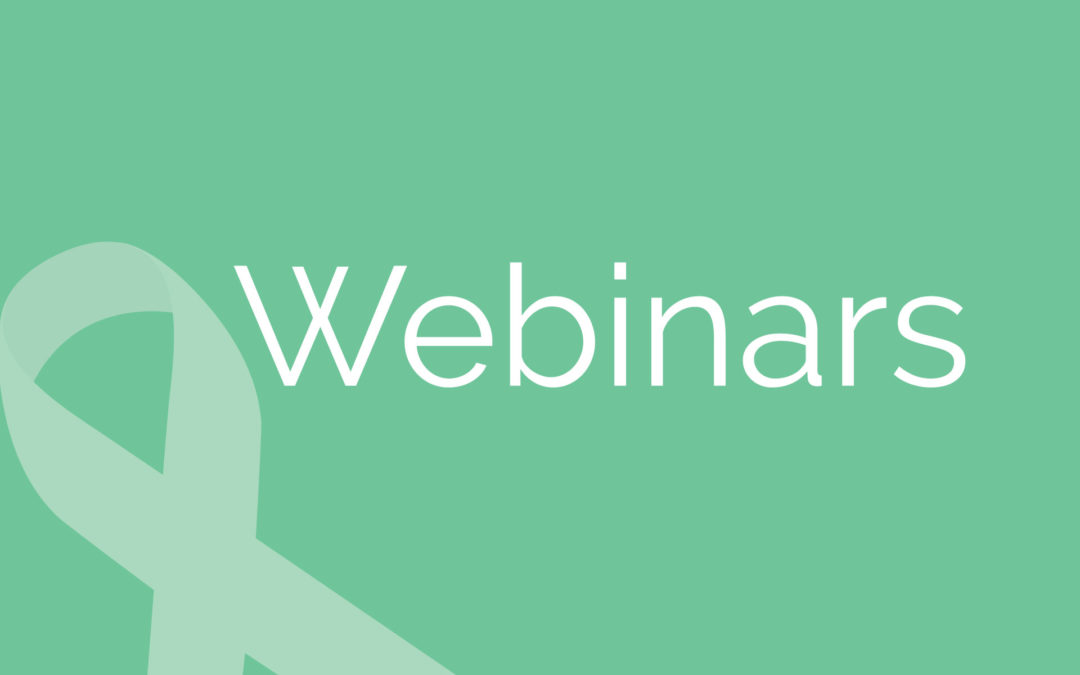
by Rick Davis | Jul 17, 2019 | Cancer Caregivers, Brain Tumors, Cancer Resources, Men 'Speaking Freely', Men's Breast Cancer, Recent News, Recorded Groups, Webinars, Women's Breast Cancer
To listen to this AnCan webinar, click here.
The presentation slides (pdf format) can be downloaded here: Language of Cancer 072919
Many reading this post live with cancer … as ‘patients’ or ‘caregivers’. Well, maybe not as ‘patients’ …. perhaps you were a patient but now you’re in durable, or perhaps not so durable, ‘remission’?? So what do we call you … ?
In this day and age of politically correct language, we best be careful about the words used. Some people are pretty sanguine being described as ‘survivors’ – doesn’t bother me personally albeit others object strongly. And they feel even stronger about other aggressive nomenclature …. ‘warrior’ and ‘fighter’ can rise to the level of abhorrence.
Then there’s ‘cure’ ….. that’s a full discussion in itself. What exactly does it mean? Is cure even feasible for many touched by cancer? How does it differ from ‘remission’; and, ‘lesion’ – should we say ‘tumor’. Have I piqued your interest yet …. our presenter and co-moderator, Dr. Richard Wassersug Ph.D, has written papers on this topic and counts a good 15 or more cancer-specific words to be used ‘with caution’!
On Monday, July 29th at 8 pm Eastern, Prof. Wassersug will be joined by journalist, Howard Wolinsky, trauma interventionalist and Stage 4 Cancer patient, Dr. Jamie Aten Ph.D, and cancer researcher diagnosed with cancer, Dr. Corrie Painter, Ph.D. . Professor Wassersug makes a short presentation followed by a stimulating panel discussion and audience questions moderated by yours truly and Dr. Wassersug … you may not agree but it will certainly give you pause for thought!
Meet The Panelists
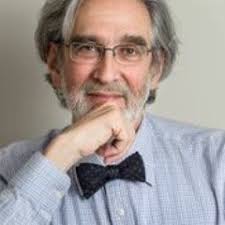 Richard Wassersug, PhD is an Honorary Professor of Cellular & Physiological Sciences at the University of British Columbia, an adjunct professor at Dalhousie University in Nova Scotia, Canada, and a psychosocial researcher. He has been treated for prostate cancer and is the lead author on the book Androgen Deprivation Therapy: An essential guide for prostate cancer patients and the loved ones. He proudly holds the Ig Nobel Prize for his important work, “On the Comparative Palatability of Some Dry-Season Tadpoles from Costa Rica”
Richard Wassersug, PhD is an Honorary Professor of Cellular & Physiological Sciences at the University of British Columbia, an adjunct professor at Dalhousie University in Nova Scotia, Canada, and a psychosocial researcher. He has been treated for prostate cancer and is the lead author on the book Androgen Deprivation Therapy: An essential guide for prostate cancer patients and the loved ones. He proudly holds the Ig Nobel Prize for his important work, “On the Comparative Palatability of Some Dry-Season Tadpoles from Costa Rica”
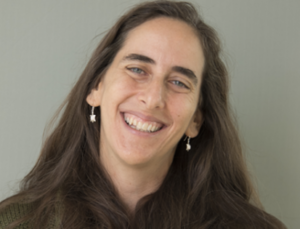 Corrie Painter Ph.D is a cancer researcher at The Broad Institute ( MIT & Harvard), diagnosed with cancer. She is also the Associate Director of Count-Me-In, a Broad Institute initiative to create large scale genomic data bases for six different cancers (to date!), including her own angiosarcoma. It relies on samples voluntarily contributed from those living with the respective diseases. Corrie is also a mom, a runner, a patient advocate, and has never met a zebrafish she didn’t like!
Corrie Painter Ph.D is a cancer researcher at The Broad Institute ( MIT & Harvard), diagnosed with cancer. She is also the Associate Director of Count-Me-In, a Broad Institute initiative to create large scale genomic data bases for six different cancers (to date!), including her own angiosarcoma. It relies on samples voluntarily contributed from those living with the respective diseases. Corrie is also a mom, a runner, a patient advocate, and has never met a zebrafish she didn’t like!
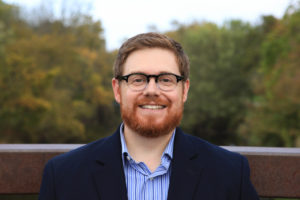 Jamie D. Aten, PhD, is founder and executive director of the Humanitarian Disaster Institute (HDI) and Blanchard Chair of Humanitarian & Disaster Leadership at Wheaton College (IL). His books include the Disaster Ministry Handbook (InterVarsity Press) and A Walking Disaster: What Katrina and Cancer Taught Me About Faith and Resilience (Templeton Press). Follow him on Twitter @drjamieaten. Jamie’s article on the Language of Cancer was published earlier this year in the Philadelphia Inquirer.
Jamie D. Aten, PhD, is founder and executive director of the Humanitarian Disaster Institute (HDI) and Blanchard Chair of Humanitarian & Disaster Leadership at Wheaton College (IL). His books include the Disaster Ministry Handbook (InterVarsity Press) and A Walking Disaster: What Katrina and Cancer Taught Me About Faith and Resilience (Templeton Press). Follow him on Twitter @drjamieaten. Jamie’s article on the Language of Cancer was published earlier this year in the Philadelphia Inquirer.
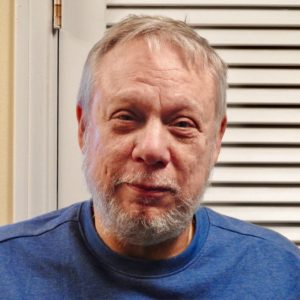 Howard Wolinsky was the medical writer for the Chicago Sun-Times for 27 years. He was nominated twice for the Pulitzer Prize for his exposes of the American Medical Association. Howard taught medical writing in the graduate school at the Medill School at Northwestern University. He despises being called a survivor–an overkill term although better than “victim.” – read his MedPage Today piece from this past year here.
Howard Wolinsky was the medical writer for the Chicago Sun-Times for 27 years. He was nominated twice for the Pulitzer Prize for his exposes of the American Medical Association. Howard taught medical writing in the graduate school at the Medill School at Northwestern University. He despises being called a survivor–an overkill term although better than “victim.” – read his MedPage Today piece from this past year here.
LINKS & ARTICLES
Colon cancer survivor and scientist: You’re so much more than a statistic – Jamie Aten Ph.D.
I Have Cancer. Please Don’t Call Me a ‘Survivor’ | Medpage Today – Howard Wolinsky
Cancer ‘Survivors’: What’s in A Word? Jane Biehl, Ph.D.
‘Fighting’ Disease Is the Wrong Metaphor – Sunita Puri, MD
Do we need to end the ‘war’ on cancer? – Richard Wassersug Ph.D.
‘Cancer Warriors’: Fighting Cancer with Karate – Kenneth Rebstock
An Emotional Slap in the Face … two oncologists discuss the language that surrounds cancer | Medscape Video with transcript
‘War on Cancer’ metaphors may do harm, research shows | The Guardian, Aug 10, 2019
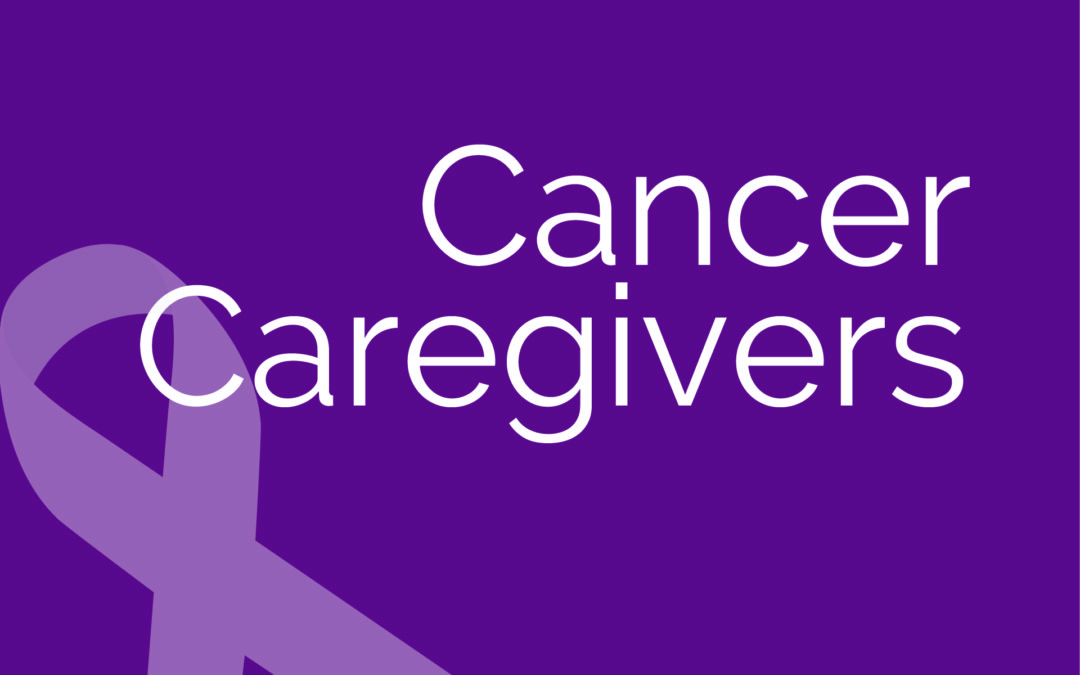
by Rick Davis | Jun 24, 2019 | Advocacy, Cancer Caregivers, Cancer Resources, Prostate Cancer, Recent News
Susan Lahaie, who co-moderates our Advanced Cancer Caregivers Virtual Group, has first hand experience advocating for medical-aid-in-dying legislation in Delaware. Her husband ,Ron Silverio, GRHS, passed in Jan 2018 from prostate cancer, and without the option of death-with-dignity that they had campaigned for during his 5 year illness.
Susan recorded her experience that was published in Friday’s Delaware State News; and even more powerful is Ron’s end-of-life testimonial recorded for Compassion & Choice shortly before he died.
AnCan stands behind those seeking greater end of life options.
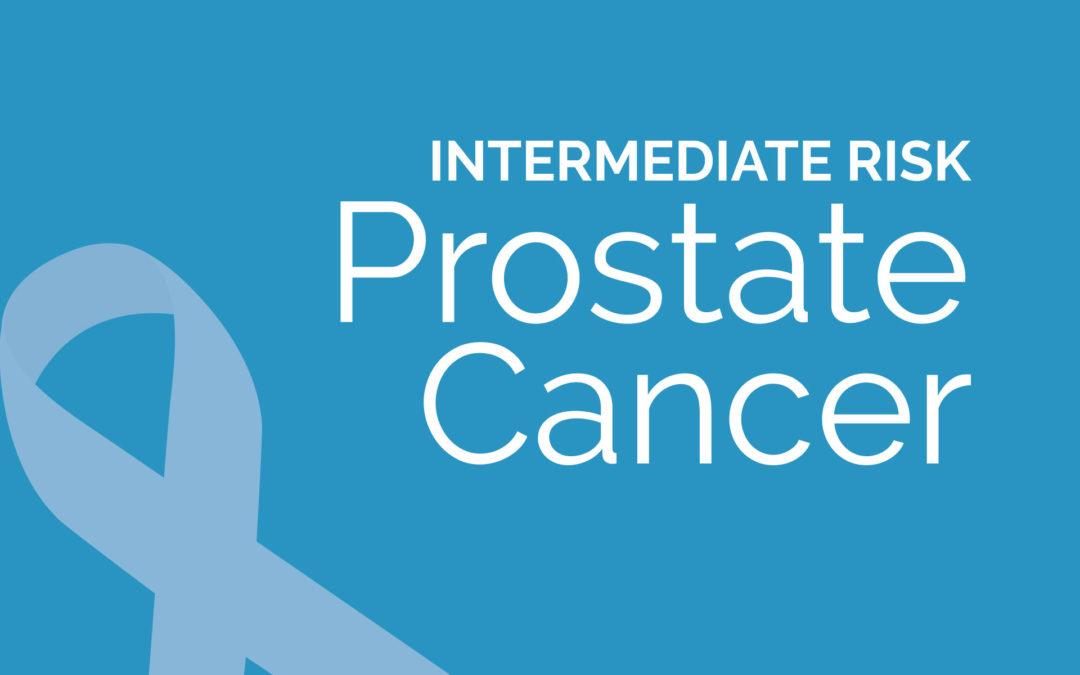
by Rick Davis | Jun 22, 2019 | Cancer Resources, Cancer Caregivers, Prostate Cancer, Recent News
My thoughts these last few days have been about the tremendous advances in the entire world of prostate cancer over the past several years. Advances in various diagnostic tools and treatment modalities seems to have made a significant impact on the lives of men. Prostate cancer for many men has become a treatable and manageable disease that is no longer a scary death sentence hanging over our heads. This is especially true for men with low and intermediate grade disease and even for men like myself with more advanced disease there are many lights shining on what was once a dark and gloomy future.
I realize that I may well live for quite a few more years, and even with advanced prostate cancer I might die of some other unrelated cause. So, what should I spend my time doing as I approach another one of those milestone markers in life that we call “birthdays”? For the foreseeable future I will continue to help men and their partners navigate through the constantly changing and complex world of treatment decisions for prostate cancer. I will try and stay as up to date with the most current changes in this field as I can so that I can continue to provide relevant support to others. But what else should I do? Yes, I will continue with an exercise regimen and try to eat a healthy diet which I know is a benefit for my health. But life is far from over for me and I suspect most of you.
I believe that keeping alive an active sense of curiosity, an interest in hearing other people’s stories instead of repeating our own, nurturing whatever artistic nature dwells in us, be it painting, photography, writing or music. Keeping up an interest in the world around us and finding small ways that we can make a difference in the lives of those who might not be as fortunate as ourselves. Keeping our hobbies alive and daring to develop new ones. Even reigniting a bit of romance in our lives and those we share this journey with. All of these endeavors are just as important to me as checking my monthly PSA numbers or taking my daily pill regimen.
Let us remember that we are Living beings. Yes, we have a commonality of a prostate cancer diagnosis. But we have a great deal of living ahead of us. Keeping our eye on this rather than the downward cycle will do more for our health than perhaps anything else. Let’s make this the year of a truly Happy Birthday!
Together, our collective knowledge and understanding is powerful.
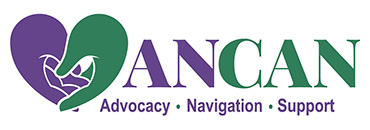
by Rick Davis | Jun 20, 2019 | Cancer Resources, Health Resources, Recent News
Many living with serious and chronic disease know how your disease path plays with emotions …… great results lift you, disappointing results send you into a dive – it’s an emotional rollercoaster. My Foundation Medicine Patient Community Council colleague who lives with advanced lung cancer, Peggy Dennis, just penned her latest ride on the COSMIC* blog – buy a ticket to read!
*COSMIC is an online database of acquired mutations found in human cancer. Somatic mutations are those that occur in non-germline cells that are not inherited by children. COSMIC, an acronym of Catalogue of Somatic Mutations In Cancer, curates data from the Cancer Genome Project at the Sanger Institute. Wikipedia.

by Rick Davis | Jun 14, 2019 | Health Resources, Advocacy, Cancer Caregivers, Cancer Resources, Men 'Speaking Freely', Prostate Cancer, Recent News
Catching up with a good buddy yesterday, he mentioned he had recently published an article! Now in my biz, most of you would not find that at all unusual, not even in a peer reviewed journal, since you know I often speak with clinical researchers!
But what if I reveal this friend is not a doctor, nor a researcher, a scientist or even a patient; he’s a journalist, albeit a health one, and the research paper is in BMC Medicine … ‘BMC’ stands for BioMedical Central. And the paper looks at whether patients and caregivers are influenced by ‘spin’ when medical research is reported.
Needless to say, the answer is very much so. This randomized trial of 900 patients and caregivers sourced from the Inspire forums was split into 3 groups each considering a different story. Half of each group were given a published ‘spun’ story, and the other half were given the ‘denuded’ rewrite. Both groups were asked the same question – would the reported treatment be beneficial to patients? The ‘spun’ versions were considered 30%more valuable for early research trials; and for later stage research the spun stories were thought to be 47% more helpful..
You have heard me say all too often, don’t believe all you read …. process this information with a grain of salt, and consider the source. Now that advice is no longer anecdotal!!

 Richard Wassersug, PhD is an Honorary Professor of Cellular & Physiological Sciences at the University of British Columbia, an adjunct professor at Dalhousie University in Nova Scotia, Canada, and a psychosocial researcher. He has been treated for prostate cancer and is the lead author on the book Androgen Deprivation Therapy: An essential guide for prostate cancer patients and the loved ones. He proudly holds the Ig Nobel Prize for his important work, “On the Comparative Palatability of Some Dry-Season Tadpoles from Costa Rica”
Richard Wassersug, PhD is an Honorary Professor of Cellular & Physiological Sciences at the University of British Columbia, an adjunct professor at Dalhousie University in Nova Scotia, Canada, and a psychosocial researcher. He has been treated for prostate cancer and is the lead author on the book Androgen Deprivation Therapy: An essential guide for prostate cancer patients and the loved ones. He proudly holds the Ig Nobel Prize for his important work, “On the Comparative Palatability of Some Dry-Season Tadpoles from Costa Rica” Corrie Painter Ph.D is a cancer researcher at The Broad Institute ( MIT & Harvard), diagnosed with cancer. She is also the Associate Director of Count-Me-In, a Broad Institute initiative to create large scale genomic data bases for six different cancers (to date!), including her own angiosarcoma. It relies on samples voluntarily contributed from those living with the respective diseases. Corrie is also a mom, a runner, a patient advocate, and has never met a zebrafish she didn’t like!
Corrie Painter Ph.D is a cancer researcher at The Broad Institute ( MIT & Harvard), diagnosed with cancer. She is also the Associate Director of Count-Me-In, a Broad Institute initiative to create large scale genomic data bases for six different cancers (to date!), including her own angiosarcoma. It relies on samples voluntarily contributed from those living with the respective diseases. Corrie is also a mom, a runner, a patient advocate, and has never met a zebrafish she didn’t like! Jamie D. Aten, PhD, is founder and executive director of the Humanitarian Disaster Institute (HDI) and Blanchard Chair of Humanitarian & Disaster Leadership at Wheaton College (IL). His books include the Disaster Ministry Handbook (InterVarsity Press) and A Walking Disaster: What Katrina and Cancer Taught Me About Faith and Resilience (Templeton Press). Follow him on Twitter @drjamieaten. Jamie’s article on the Language of Cancer was published earlier this year in the Philadelphia Inquirer.
Jamie D. Aten, PhD, is founder and executive director of the Humanitarian Disaster Institute (HDI) and Blanchard Chair of Humanitarian & Disaster Leadership at Wheaton College (IL). His books include the Disaster Ministry Handbook (InterVarsity Press) and A Walking Disaster: What Katrina and Cancer Taught Me About Faith and Resilience (Templeton Press). Follow him on Twitter @drjamieaten. Jamie’s article on the Language of Cancer was published earlier this year in the Philadelphia Inquirer. Howard Wolinsky was the medical writer for the Chicago Sun-Times for 27 years. He was nominated twice for the Pulitzer Prize for his exposes of the American Medical Association. Howard taught medical writing in the graduate school at the Medill School at Northwestern University. He despises being called a survivor–an overkill term although better than “victim.” – read his MedPage Today piece from this past year here.
Howard Wolinsky was the medical writer for the Chicago Sun-Times for 27 years. He was nominated twice for the Pulitzer Prize for his exposes of the American Medical Association. Howard taught medical writing in the graduate school at the Medill School at Northwestern University. He despises being called a survivor–an overkill term although better than “victim.” – read his MedPage Today piece from this past year here.


